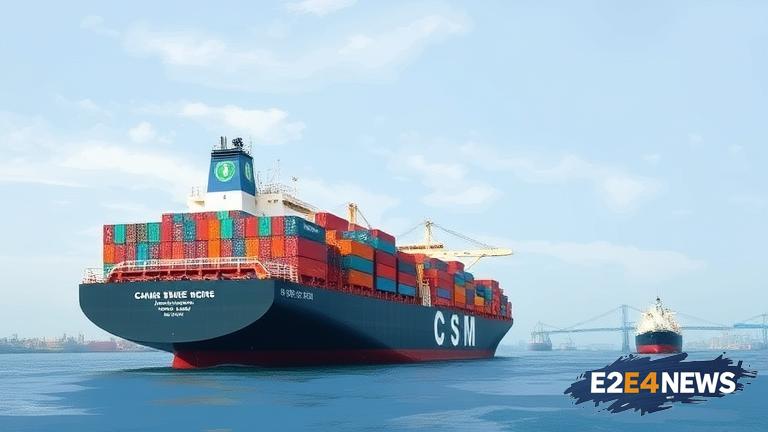The Nigerian maritime industry has been plagued by revenue leakages, with experts estimating that the country loses a staggering $500m annually due to inefficiencies in shipbroking. This significant loss has been attributed to the lack of regulation and oversight in the industry, allowing foreign companies to dominate the market and exploit local operators. Maritime experts have warned that this trend must be reversed to prevent further economic hemorrhaging. The shipbroking industry is a critical component of the maritime sector, responsible for facilitating the chartering of ships and negotiating contracts between shipowners and charterers. However, the absence of a robust regulatory framework has created an environment conducive to corruption and exploitation. Foreign companies have taken advantage of this situation, capturing a significant share of the market and leaving local operators to struggle. The Nigerian government has been urged to take immediate action to address this issue, including the establishment of a regulatory body to oversee the industry. This would help to create a level playing field, ensuring that local companies can compete fairly and preventing foreign operators from exploiting loopholes. Furthermore, experts have recommended that the government implement policies to encourage the growth of local shipbroking companies, such as providing incentives and training programs. The development of a robust shipbroking industry is crucial for the growth of the Nigerian economy, as it would create jobs, stimulate economic activity, and increase government revenue. In addition, a well-regulated shipbroking industry would help to reduce the risk of corruption and ensure that transactions are transparent and accountable. The Nigerian Maritime Administration and Safety Agency (NIMASA) has been tasked with developing a framework to regulate the industry, but progress has been slow. Experts have expressed frustration at the lack of urgency in addressing this issue, warning that further delays would only exacerbate the problem. The loss of $500m annually is a significant blow to the Nigerian economy, and experts have cautioned that this could have far-reaching consequences if left unchecked. The shipbroking industry is a complex and specialized field, requiring expertise and knowledge to navigate. However, with the right regulatory framework and support, local companies can develop the capacity to compete with foreign operators. The Nigerian government must prioritize the development of the shipbroking industry, recognizing its potential to drive economic growth and create employment opportunities. By taking decisive action to address the issues plaguing the industry, the government can help to stem the loss of revenue and create a more sustainable and equitable maritime sector. The benefits of a well-regulated shipbroking industry would be far-reaching, with positive impacts on the economy, employment, and government revenue. Experts have emphasized that the time for action is now, and that further delays would only serve to undermine the growth and development of the Nigerian maritime industry. The Nigerian government must work closely with stakeholders, including local shipbroking companies, to develop a comprehensive framework that addresses the challenges facing the industry. This would involve conducting thorough research and analysis, as well as engaging in extensive consultation with industry experts. By working together, it is possible to create a thriving and sustainable shipbroking industry that benefits the Nigerian economy and people. The future of the Nigerian maritime industry depends on the government’s ability to address the issues plaguing the shipbroking sector, and experts are hopeful that decisive action will be taken to prevent further revenue leakages.





